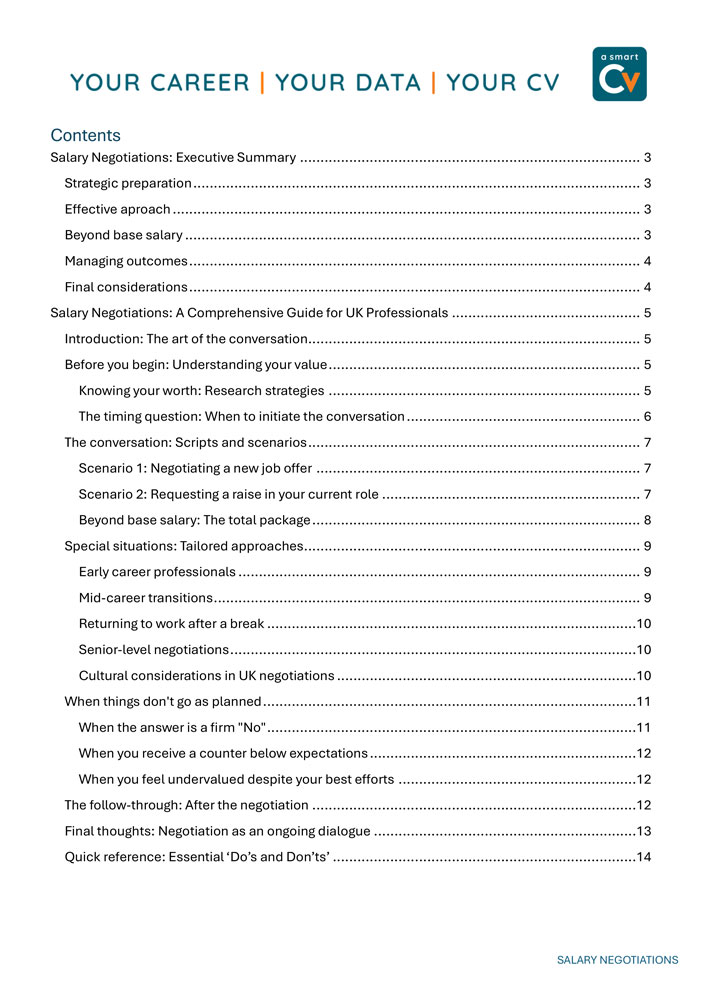Strategic preparation
Successful negotiations begin long before the conversation itself. Conduct thorough research using UK-specific resources like Reed’s salary guide, Glassdoor, and professional body surveys to establish realistic market rates. Document your quantifiable achievements and unique contributions to build a compelling case for your value.
Timing is crucial, initiate discussions after receiving formal offers (but before accepting), during performance reviews, following significant achievements, or when taking on expanded responsibilities. Avoid periods of organisational turbulence or following underwhelming performance.
Effective approach
When negotiating, adopt a measured, factual tone that aligns with British workplace culture. Present your case with confidence but avoid aggressive tactics that may damage relationships. Frame discussions around your value to the organisation rather than personal financial needs.
For new roles, express enthusiasm for the opportunity before discussing compensation. When requesting a raise, provide concrete examples of your contributions and their impact on business objectives.
Beyond base salary
Remember that compensation extends beyond base salary.
Consider negotiating:
- Performance-based bonuses
- Flexible working arrangements
- Additional annual leave
- Professional development opportunities
- Enhanced pension contributions
- Healthcare benefits
- Accelerated review timelines
These elements can significantly enhance your overall package, particularly when salary flexibility is limited.


 PREVIOUS
PREVIOUS








